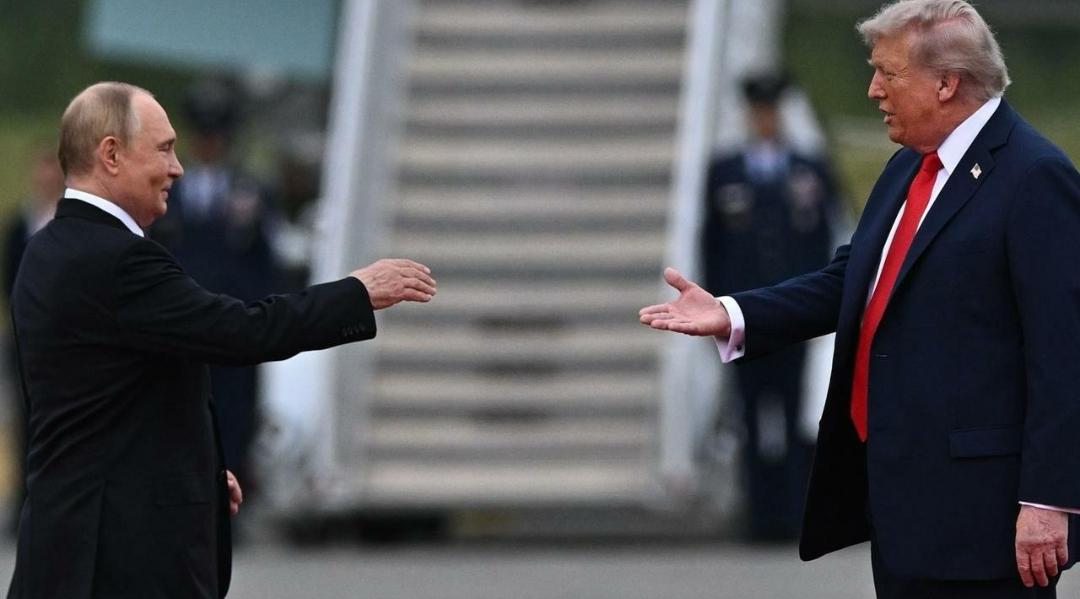
The much-anticipated meeting between U.S. President Donald Trump and Russian President Vladimir Putin in Alaska has concluded, but without the breakthrough many were hoping for on the Russia-Ukraine war. Expectations were high that the two leaders might agree on a ceasefire or at least take a step toward halting the conflict. However, no decision on a ceasefire was reached, and no agreement on ending the war was made. While both sides described the talks as “positive,” the lack of concrete progress leaves the global community uncertain.
In the aftermath of the meeting, President Trump made a statement that carries significant implications for India. Trump said that, for now, he does not see the need to impose new tariffs on countries like China that continue to purchase Russian oil. This remark is being viewed as an important signal for India as well, raising the question: can India continue buying Russian crude without fear of American penalties?
Trump, however, also issued a warning, saying that he could reconsider this decision within the next two to three weeks. This leaves open the possibility that tariffs could still be applied to China and potentially to India, signaling a period of uncertainty for both nations.
Interestingly, Trump claimed that his earlier threat of heavy tariffs on India was a key factor in pushing Russia to the negotiating table. According to him, when the United States warned India that it would face steep tariffs if it continued purchasing Russian oil, Moscow realized it could risk losing one of its most important buyers. This pressure, Trump argued, was what compelled Russia to show willingness to engage in talks.
India’s position in this equation is crucial. Russia sees India as one of its biggest energy customers, second only to China, which remains Russia’s largest oil buyer. Over recent years, India has steadily increased its imports of discounted Russian crude, reaching levels close to China’s volumes. A halt in Indian purchases would deal a major blow to Moscow’s economy, already strained by Western sanctions.
Despite Trump’s claims, India has maintained a clear stance. The Indian government has stated that its energy policy will not be dictated by external pressures. Indian Oil Corporation (IOC) Chairman A.S. Sahni affirmed that India will continue to buy Russian oil based purely on economic considerations, emphasizing that the decision is guided by what benefits the nation most. India’s Ministry of External Affairs also labeled U.S. tariffs as unfair, reiterating that the country will safeguard its national interests.
The backdrop to this is America’s trade pressure on India. Just last week, Washington imposed a 25 percent import tariff on Indian goods. Trump also announced an additional 25 percent tariff, meaning that from August 27, India will face a total of 50 percent tariffs on exports to the United States. This poses a significant challenge for the Indian economy, particularly for companies that rely heavily on the U.S. market.
Thus, India finds itself in a dilemma. On one hand, it faces mounting economic pressure from Washington, its major trade partner. On the other hand, it needs affordable oil, which only Russia is currently supplying at favorable rates. Meanwhile, Russia is under growing pressure to retain both India and China as customers, as losing either could further weaken its economic position.
Trump appears to be using tariffs as leverage, aiming to weaken Russia by pushing its top buyers, India and China, to cut back on oil imports. However, experts caution that this strategy could backfire. If India takes a firm stand against U.S. pressure, Trump could face significant pushback, potentially undermining his own strategy.
Ultimately, while the Trump-Putin meeting in Alaska failed to stop the war, its ripple effects are being felt far beyond Ukraine. For India, the next few weeks will be critical. The country must decide how to balance U.S. trade pressure with its energy security needs. Whether India continues buying Russian oil or adjusts under American tariffs will have major implications not only for its economy but also for the broader geopolitical landscape.
At this stage, the situation remains fluid, with Washington applying pressure, Moscow fighting to hold onto its key buyers, and India carefully weighing its energy and economic interests. The outcome of this three-way tug-of-war between the United States, Russia, and India will become clearer in the coming weeks.
Disclaimer:
This article is based on publicly available information and recent geopolitical developments. It is intended for informational purposes only and should not be considered as financial, investment, or policy advice. Readers are encouraged to follow official government statements and verified news sources for the latest updates.




